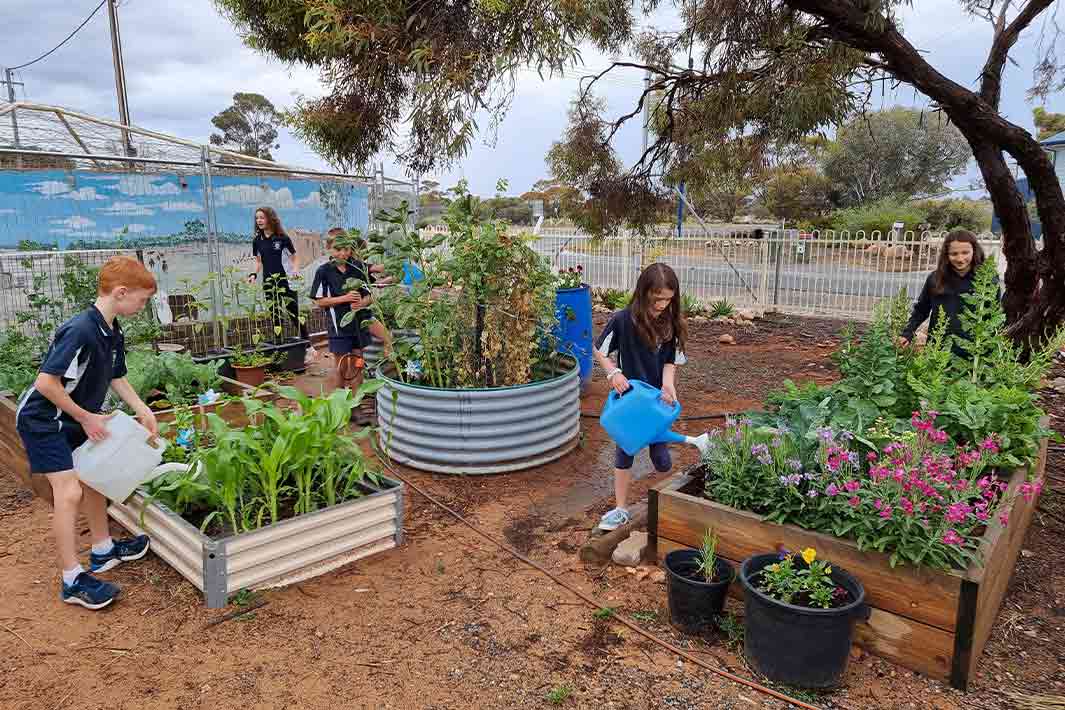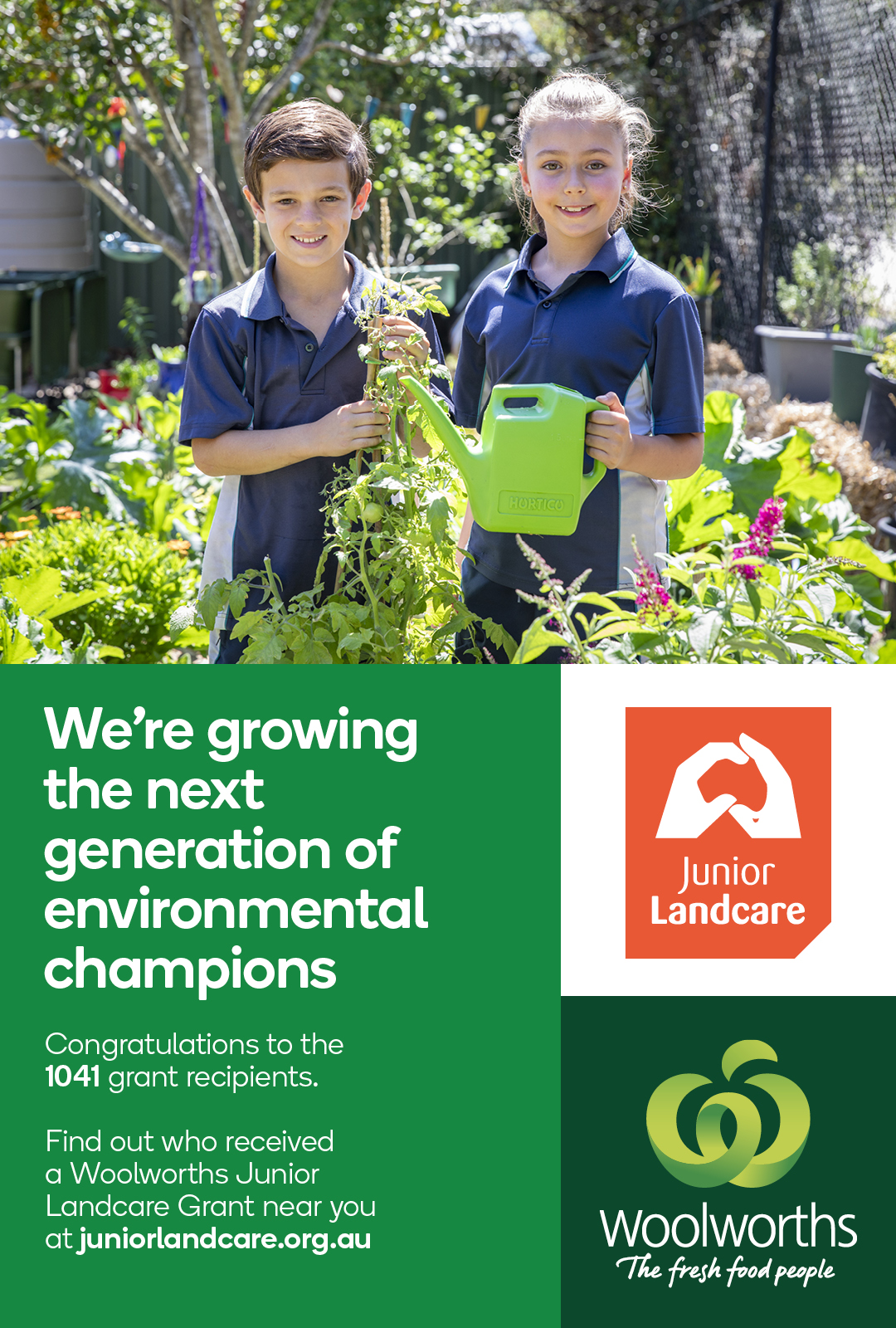CASE STUDY

Age Groups: 0-7 | 7-13
Grant Name:
School: Blanchetown Primary
Grant Sponsor: Woolworths
Project Overview:
Blanchetown Primary is a small school in the Riverland region of South Australia. 42 children from the school enjoyed getting their hands dirty on a garden project funded through a Woolworths Junior Landcare Grant.
Through involvement in the project, the students learnt and experienced an abundance of new knowledge and skills, about how our food grows, why nutritional choices are important, and about sustainable practice. They also experienced the mental health benefits of being in the fresh air digging in the dirt and tending to plants, and the joy of watching plants grow and the calming effect of being in nature.
The students got stuck in, planting 80 vegetable plants, 20 herb and flower plants, and 20 fruit trees. They also weeded the garden plot, built the potting shelter, and watered the garden daily. They harvested the produce once it began to grow, and utilised the fruits of their labour in cooking workshops to create healthy options to serve at the school’s Breakfast Club.
They loved to pick things and taste produce at its freshest and most delicious, and learnt so many new things about growing food through their involvement in the project.
Environmental Outcomes:
The students created a fantastic ecosystem at the bottom of their school yard, which is now alive with bees, butterflies, birds and lizards. The lunchtime food scraps are fed to the chickens, as well as the weeds and excess leafy greens. This helps keep them healthy and in turn provide eggs for the Breakfast Club. The health of the river and water conservation are particularly relevant as the Murray River runs through the middle of Blanchetown, and gives life to agriculture in the area. The garden environment has started many conversations about drought, rain and conserving water.
Educational Outcomes:
Garden experiences reinforce classroom curriculum subjects. Measuring the plot, working out the distance required between various plants and therefore how many can fit it, reading the instructions and seeing how different vegetables form and grow. For students who struggle to learn in a classroom environment, the learning that takes place in the garden is particularly valuable. The garden helps provide a level playing field for the different learning styles and academic levels within classes. The children have also learnt valuable life skills, such as gardening and cooking, as well as valuable lessons about responsibility, patience and teamwork
Conclusion:
This project has offered the students involved, parents and community an opportunity to contribute to the school in a practical way. Parent volunteers assisted with planting and maintenance and building of a shelter, of which there was great pride.
The students learnt many transferable skills and knowledge, and will continue to build on these as their stewardship of the garden continues.
 Teachers & Educators
Teachers & Educators Youth or Community Groups
Youth or Community Groups